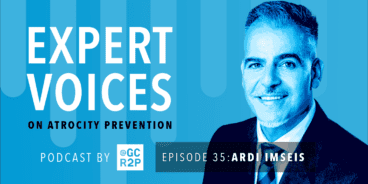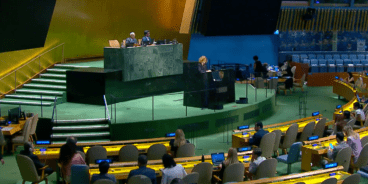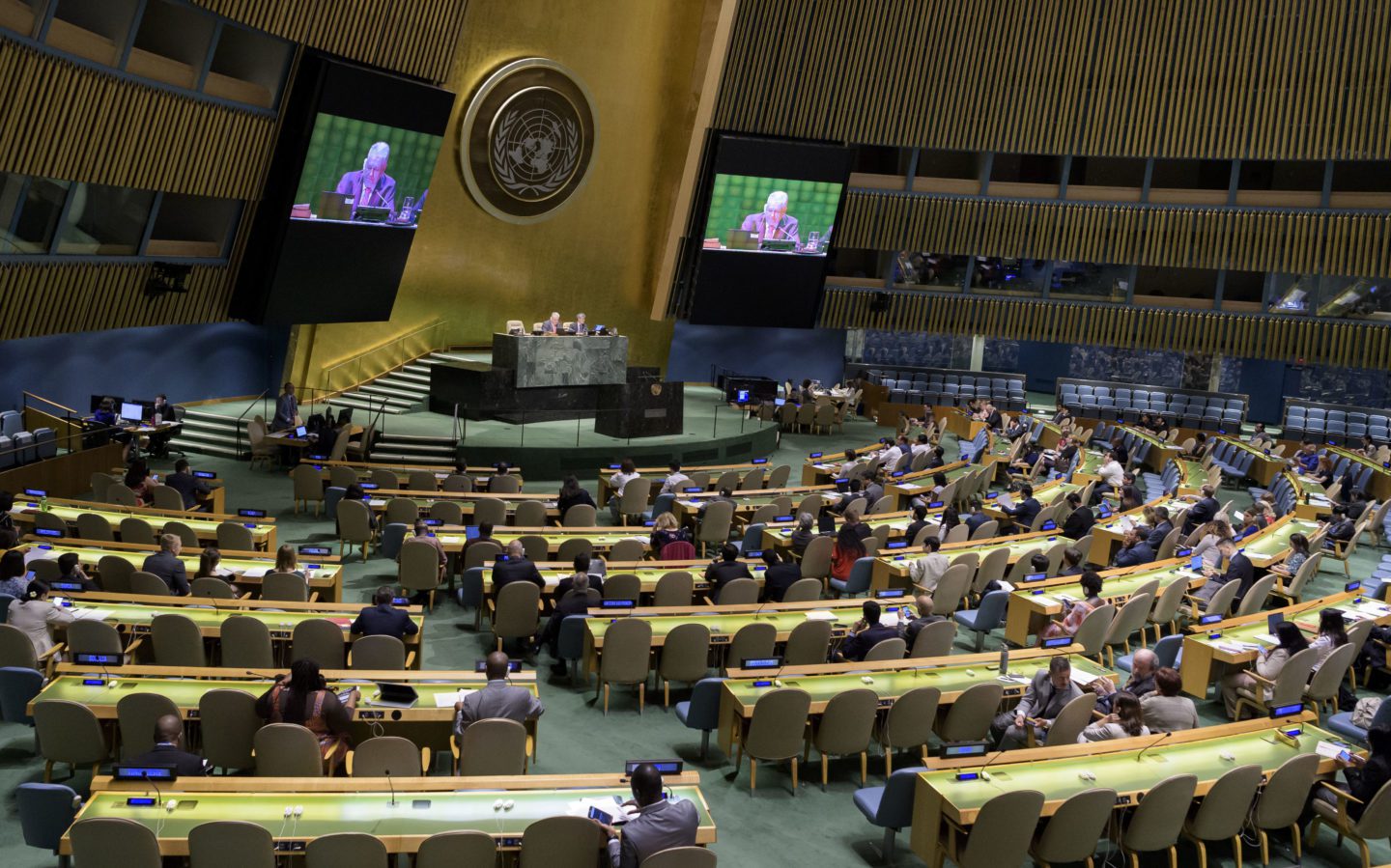
UN General Assembly Holds 2018 Debate on the Responsibility to Protect and the Prevention of Genocide, War Crimes, Ethnic Cleansing and Crimes Against Humanity
Today, 25 June, the UN General Assembly will hold a debate on “The Responsibility to Protect (R2P) and the prevention of genocide, war crimes, ethnic cleansing and crimes against humanity” as part of the Formal Agenda of its 72nd session. Today’s debate constitutes the first formal discussion of R2P by the UN General Assembly since 2009 and reflects the consensus that has been built throughout the past decade regarding the importance of preventing atrocities, despite setbacks and differences of opinion regarding effective implementation. We commend the General Assembly for encouraging a substantive and vigorous discussion on R2P amongst member states.
Today’s debate takes place amidst a historic weakening of all the laws and norms that bind and safeguard humanity. In Yemen indiscriminate attacks on civilian infrastructure, including schools and medical facilities, continue. The civil war in Syria has killed half a million people and more than 85 chemical weapons attacks have taken place inside the country since August 2013. Over 690,000 Rohingya refugees are currently living in Bangladesh, having fled atrocities perpetrated by Myanmar’s security forces last year, including the systematic burning of more than 350 villages. As noted in this year’s annual report of the Secretary-General on R2P, “From Early Warning to Early Action,” the world simply must get better at preventing and halting these most conscience-shocking crimes.
R2P remains the most effective principle around which the international community can coalesce when vulnerable populations face the threat of genocide, war crimes, ethnic cleansing and crimes against humanity. It is also a promise to those people for whom these crimes are not abstract words, but real acts that pose an existential threat to them, their loved ones, and their communities. R2P has helped save lives in Côte d’Ivoire, Central African Republic and elsewhere. We hope that during today’s debate member states recommit to upholding that promise and offer creative strategies regarding how the international community can take effective proximate preventive action wherever and whenever mass atrocity crimes are threatened.
Today’s debate is taking place at a time when a record 68.5 million people around the world have been displaced by persecution, conflict and mass atrocities. We strongly urge member states to consistently and meaningfully uphold the commitment enshrined in paragraphs 138-139 of the World Summit Outcome Document, and also ensure the inclusion of R2P as a standing item on the General Assembly’s agenda.
Related Publications


Summary of the 2024 UN General Assembly Plenary Meeting on the Responsibility to Protect
